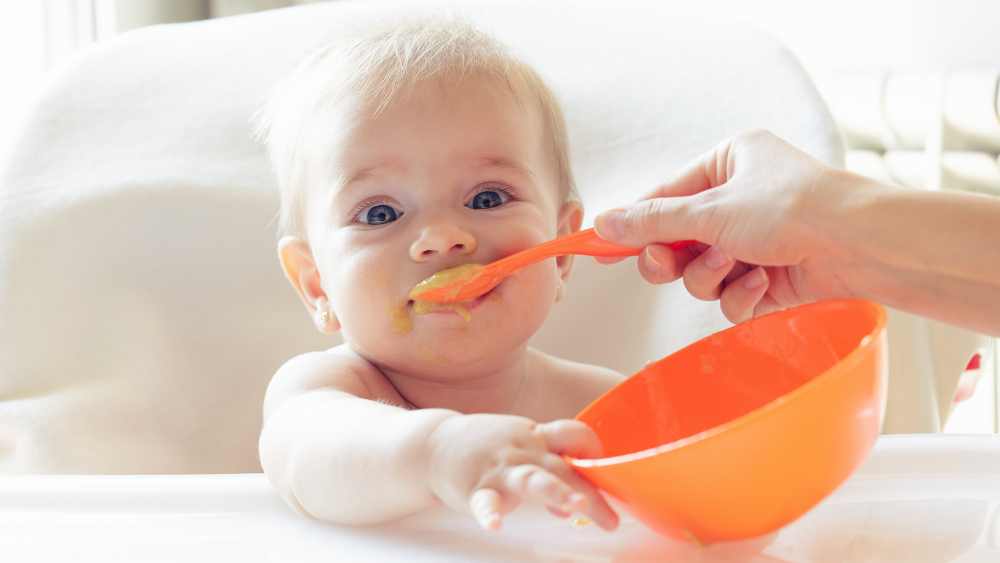Feeding a baby can be a bit tricky, especially with newborns. You might wonder if your baby has had enough to eat. As a new parent, it's normal to worry because you want to make sure your baby is healthy and gaining weight as they should. So, let’s get right into it!
How to Know if Your Baby is Hungry
Since babies can't talk, it can be hard to tell when they're hungry. You can usually tell if your baby is hungry if they latch onto your fingers, gnaw on their hands, or start getting fussy. Instead of waiting for hunger cues, you can feed your baby on a regular schedule. This can help you know when they're likely to be hungry.
How Often Should I Feed My Baby?
Here’s a general feeding schedule you can follow, depending on your baby’s age. Remember, every baby is different, so it may vary:
• Less than a month old: Your baby should be fed every 1-2 hours. Their stomachs are small, so they get hungry quickly.
• 1 to 2 months old: As your baby grows, they’ll go longer between feedings, up to 3 hours. A 2-month-old should be fed about 8 times a day.
• 3 to 4 months old: At this age, your baby will want to be fed every 3-4 hours. A 4-month-old should be fed around 6 times a day.
• 5 to 6 months old: Your baby should be fed every 3-4 hours, up to 5-6 times a day.
What Age is Best to Start Solid Foods?
Introducing solids to your baby is a big milestone. However, it's important to wait for the right time, as milk should be the main source of nutrition until a certain age.
The best time to start solid foods is when your baby is over 6 months old. Even if you start solids at 6 months, breastmilk or formula should still be their main source of nutrition. Starting solids helps your baby get used to different textures and flavors.
When baby turns 7 to 8 months, they are able to eat different types of solid foods.
Every 6-month-old will react differently to solid food. A good way to check if your baby is ready for solids is to see if they actually eat the food you offer. If the food just comes out of their mouth, they may not be ready yet.
Your baby should be ready for solids if they:
- Can hold their head up in an upright position,
- Can sit up without support,
- Are mouthing their hands and toys,
- Are showing a desire to eat by leaning forward.
If your baby rejects solid food, even though they meet the requirements, that's normal. You can try again in a few days, but don’t force them to eat.
Why Babies Need Solids
At 6 months, solid foods should be introduced to help your baby get used to different textures and flavors. This is important because when they fully switch to solid foods at 1 year old, they should already know what solid food is like and how to eat it.
This is also when they start learning how to move food to the back of their mouth to swallow.
How Long Does It Take for Baby to Get Used to Solids?
Once you start introducing solids to your baby at 6 months, it can take anywhere from a few days to a few months for them to get used to it. Every baby is different, so some might like solids right away, while others may take their time to adjust.
No matter how long it takes, there’s no need to stress. Your job is to keep trying and offer different textures and flavors but never force them to eat.
When it comes to getting used to a specific food, babies usually need 2 to 3 days of having the same food to get familiar with it.
How Can I Encourage My Baby to Eat?
There are many things you can do to make food more appealing for your baby. Here are some ways to encourage your baby to eat:
- Test different textures. One of the most common reasons why babies reject food is because of the texture.
- Test different temperatures. If you have been giving a food at a certain temperature, give them the warmer or colder version of the same food.
- Use seasoning. Except for salt, you can try a pinch of seasoning in your babies food that will get their taste buds to like it.
- Complement the food with some cheese or yogurt. It is perfectly okay to give your child some unsweetened yogurt with some fruit or veggies.
- Let them make a mess. This will allow them to really get a feel of the food, and when they are playing with it some of it is bound to end up in their mouths.
- Let them eat when everyone is also eating. When your baby sees everyone else around them eating, they will be encouraged to do the same.
Make a game out of it. Babies love distractions and playing a game can help get the food into their mouths.
What Foods Should I Introduce to My Child First?
When introducing foods to your baby, make sure they are rich in iron and not a choking hazard.
You can first introduce foods like:
- avocado
- Sweet potatoes
- Mashed potatoes
- Scrambled eggs
- Broccoli
- Bananas
- Pears
Foods to Avoid when Feeding Baby
- Honey
-
Half cooked, or runny eggs
- Whole nuts
- Bananas
- Pears

